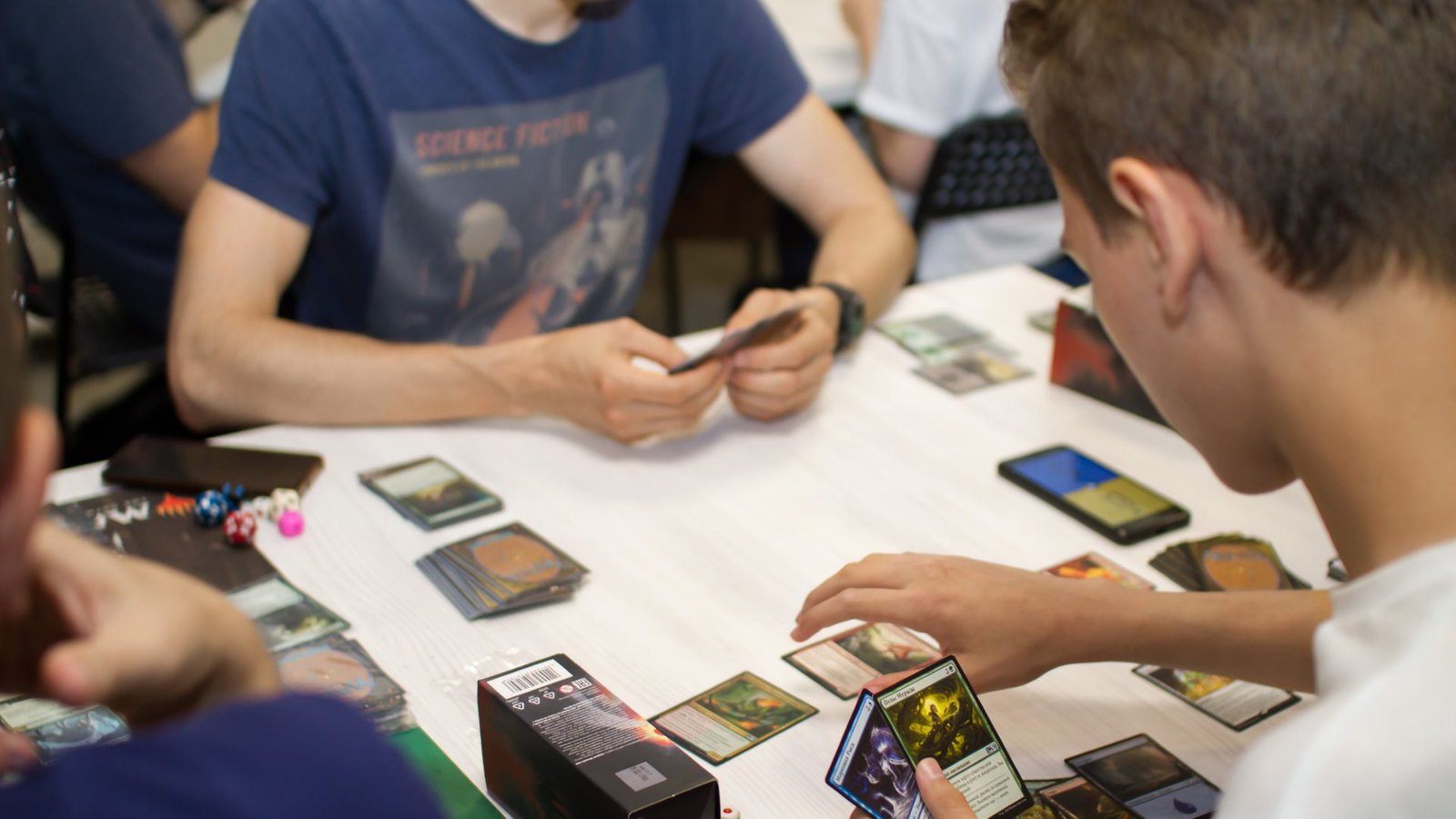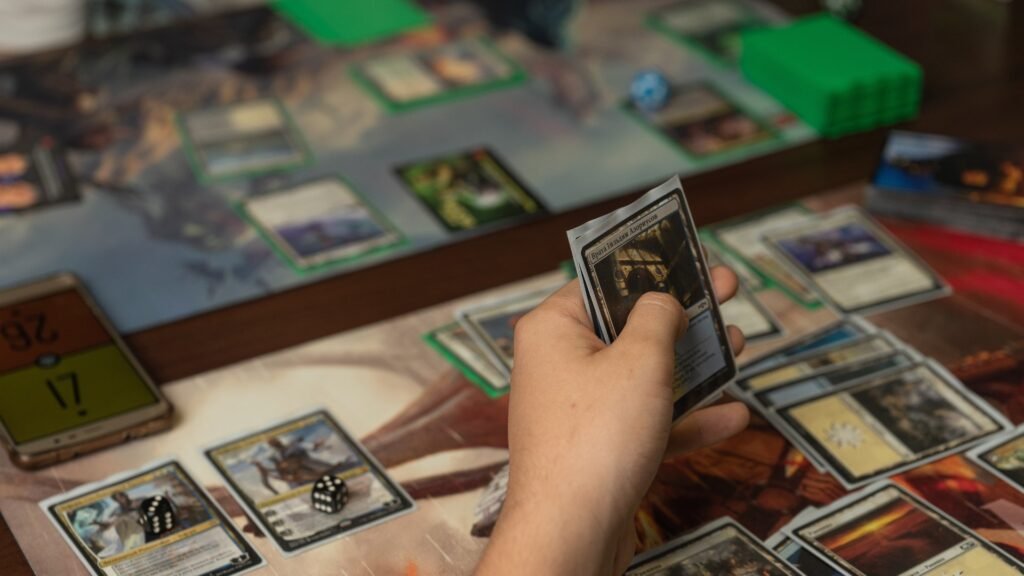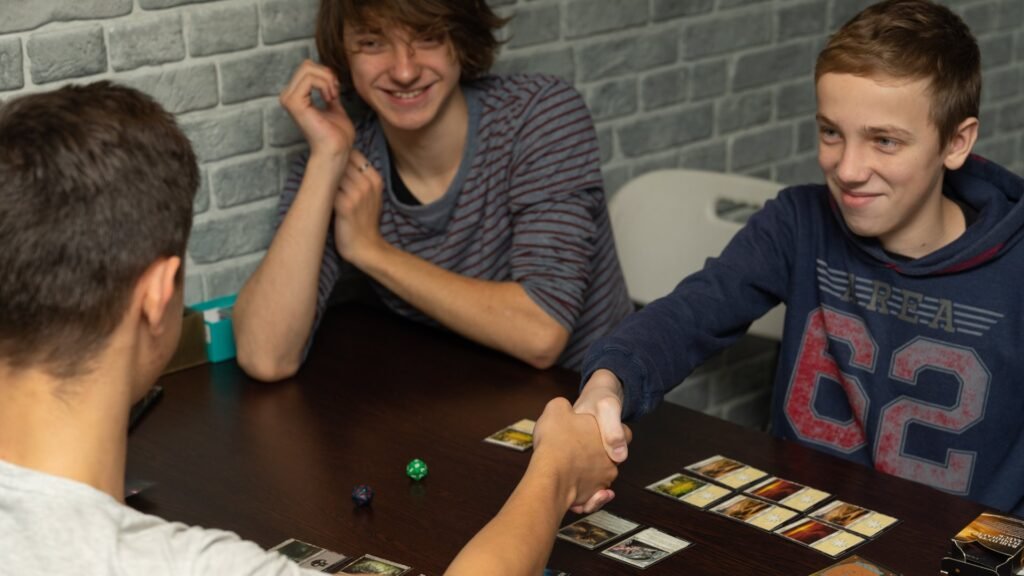
Magic: the Gathering has been captivating gamers for decades, and there’s nothing quite like sitting across the table from a friend—or rival—and battling with your favorite deck. But what if you don’t have anyone in your area to play with, or your local store closed down last year? Sometimes it’s tough to know where to look. Here’s how it works: today we’re going to walk through all the best ways to find cards and players near you. From store locators to Facebook groups to the occasional geek-themed bar, I’ve got you covered.
Feel free to grab a cup of coffee (or maybe a Mountain Dew) and settle in. I’ll try to keep it direct and clear. I believe you’ll find at least one or two methods here that will lead you to new gaming buddies and fresh packs to crack open.
One of the easiest ways to find a place to play Magic is the official Wizards of the Coast store locator. It’s on their website, and it’s pretty straightforward.
You’ll typically see a list of local game stores (LGS) in your area along with upcoming events like Friday Night Magic or prerelease tournaments. If you’ve never been to an in-person tournament, try to arrive a bit early with your deck, dice, and whatever else you need. That way, you’ll have time to meet folks, maybe trade a few cards, and ask the store owner how they run things.
Once you settle on a store, pay attention to how they run events. In many places, you now sign up and report match results using the MTG Companion app. If you haven’t installed it yet, it’s on Google Play or the App Store. I suggest installing the app and creating an account ahead of time to avoid any last-minute scramble at the store.

When you first start going to an LGS, you might see a lot of unfamiliar terms. Don’t panic. Here’s a quick overview:
These events typically happen the weekend before each new set officially launches. You’ll get six booster packs, build a 40-card deck with them (plus basic lands), and then battle. Prereleases are often pretty relaxed, and everyone there wants to try out the new cards. It’s a great place to start if you’re new because everyone’s on roughly equal footing.
In a Draft, you sit at a table with usually eight players. Each player opens a booster pack, picks one card, and passes the rest to their neighbor. You repeat this until all cards are drafted. Then you build a 40-card deck and play. Draft can feel more competitive, but it’s also a ton of fun because every deck is unique.
Standard is a Constructed format that uses the most recent sets (usually the last two years’ worth). You’ll need to bring a 60-card deck built from legal sets. Standard events can range from casual meets to more serious tournaments.
Commander is a multiplayer format where you build a 100-card deck around a legendary creature (your “commander”). You can’t have duplicates of cards (except basic lands). Commander can be super casual or quite competitive. Some stores run prize-supported Commander pods, while others focus more on having a good time and might award prizes for the coolest play or the most unique deck.
Modern is a large Constructed format that includes many sets going back to 8th Edition and Mirrodin. If you’ve been playing a long time, you might love Modern because it has a vast card pool. It can also be pricier and more complex than Standard, so if you’re new, you might hold off until you’re more comfortable with the game.
Not all of us have an LGS nearby. If that’s your situation, big retail chains like Walmart or Target usually carry Magic products, especially recent packs, bundles, and even some Commander precons. If you just want to pick up some boosters to crack with a friend, these places might be fine.
You can sometimes find Magic packs at stores like CVS, Walgreens, or GameStop too, but their selection is often pretty limited. I’d personally call ahead or check online first to see if they have what you want.
If you’ve struck out locally, or you just prefer the comfort of your couch, you can always order cards online. Amazon is a popular place to buy sealed products, like booster boxes or fat packs (now called Bundles). For singles, look at reputable sites like:
Reputable Proxy Sites:
You’ll generally find pretty competitive prices, but keep in mind shipping costs. I usually buy singles online when my LGS doesn’t have them in stock. It’s a nice balance because I still support my store when I can.
Have you tried using Discord? It’s a popular app (and website) where gamers gather to chat, share memes, and organize events. Many local Magic communities have servers. If you’re lucky, your city might have something like “MTG [CityName]” or an LGS might have a dedicated server. Once you find it, you can check event announcements, coordinate trades, or even set up Commander nights at someone’s home (if that’s your thing).
If you don’t find a local Discord, you might still join bigger Magic-focused servers. The official MTG Arena Discord is very active. There’s also the Draftsim server (if you’re into drafting). These won’t necessarily help you meet local players, but you’ll at least make some Magic friends online.
Yes, Facebook is still around, and it can be an excellent place to find Magic groups. You can search for “Magic the Gathering [CityName]” or “MTG [RegionName].” Many local game stores maintain active Facebook pages where they announce upcoming tournaments and post pictures of new shipments.
If you join these groups, you might also meet players looking for trades or forming Commander pods. It’s a straightforward way to get in the loop about what’s going on around you. And while Facebook might feel old-school, it’s still massive and sometimes more up to date than store websites.

Reddit is a collection of communities called “subreddits.” If you want to talk Magic, there are a few big ones:
You can also post in your city’s subreddit (e.g., r/Chicago or r/Orlando) to ask if there are local groups you can join. You might be surprised who’s lurking there, just waiting for the chance to jam a Commander night.
https://www.reddit.com/r/magicTCG
Sometimes called “LAN centers,” gaming cafés are places where you can rent a PC station or a console station and play video games. They often attract a wide gaming audience, and occasionally you’ll find folks who also love Magic. You might see a small shelf of board games or a posted flyer about an upcoming card tournament. It’s a bit of a shot in the dark, but worth a quick search if you’re out of other options.
If you’re of legal drinking age, geek-themed bars can be interesting places to find fellow Magic players. These spots often host trivia nights, cosplay events, or tabletop gaming meetups. In my opinion, it’s worth a visit if you see a place advertising something like “Board Game Night” or “Trading Card Night.” You might come away with a few new friends who share your love of cardboard showdowns.
This might sound obvious, but have you asked around? Sometimes your cousin, neighbor, or colleague at work might already play Magic. Or maybe they used to play and have old cards collecting dust. You never know until you mention it.
If they’re interested but never learned how to play, you can offer a quick introduction. MTG Arena is a nice beginner-friendly tool because it automates the rules. Once they’re hooked, you can show them the ropes at a prerelease. Building your own Magic group from scratch might be easier than you think.

College campuses often have clubs for every hobby you can imagine. Magic is no exception. If you’re a student, check the student union or club directory. You might also search your college subreddit or Facebook group. These clubs sometimes run their own events, have a collection of communal decks, or host Commander nights. The best part is meeting people your own age who share your interests. Plus, it’s cheaper than hitting up the mall to buy packs at retail prices.
If you’re not a student, some colleges have open gaming nights where the community is welcome. You could swing by and ask if you can join in. At worst, you take a walk around campus and get a bit of exercise.
Some libraries run all kinds of community events, especially for kids and teens. In some towns, there might be a “Trading Card Game Club” where Magic, Pokémon, and Yu-Gi-Oh players all share a space. Don’t hesitate to call your local library and ask if they have a Magic group. If they don’t, you could suggest starting one. Librarians are often open to new ideas that bring people together.
Let’s say you’ve tried the store locator. You checked Facebook. You asked your coworker. You even popped into the local gaming café. Maybe you’re still not finding any events or local players. It’s unfortunate, but it happens in smaller towns or areas where Magic hasn’t caught on.
Luckily, MTG Arena and Magic Online exist. Both let you draft or play Constructed at any time of day without leaving your house. Of course, this doesn’t give you the social experience of in-person Magic, but it’s better than not playing at all.
I’d also keep an eye out for traveling events. Large tournaments like MagicFests (previously Grand Prix) might pop up a few hours away. Sometimes it’s worth making a day trip or even a weekend out of it. You’ll get to play lots of Magic, buy cards from vendors, and hopefully meet a few folks who live closer to you.
I get that it can feel daunting when you move to a new area or your old store goes out of business. But Magic is a big game with a huge community, and if you keep looking, you’ll find folks who share your passion for spells and creatures.
In my opinion, the real magic of Magic is the community. Nothing beats the camaraderie of cracking packs together, swapping deck ideas, and bemoaning that one person who always counters your bombs. It’s all part of the experience. So don’t be shy. Head to an event, say hello to a stranger, and ask if they’ve got a favorite Commander or a wild story from a past tournament.
Who knows what friendships might spark out of a shared love for cardboard? And if you have a wacky story about finding new players in the most unexpected place—a bus station, a wedding reception, or a random game night—feel free to share it. Magic brings people together in surprising ways.
Good luck on your hunt, and may your opening hand always have enough lands.